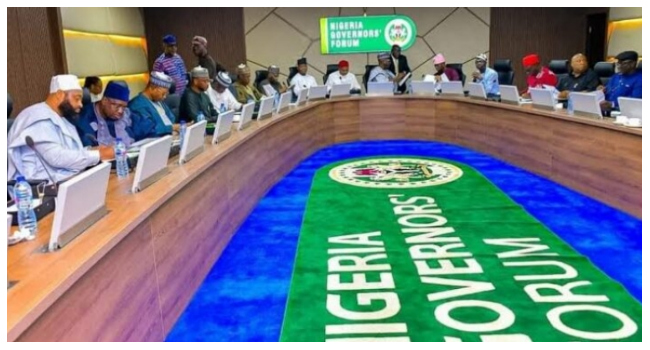Governors Call for Nationwide Metering Enforcement, End to Electricity Subsidies

In a significant move aimed at addressing critical issues within Nigeria’s electricity sector, state governors have urged the federal government to enforce a “no-meter, no-service” policy for all new electricity connections across the nation.
This plea comes as states prepare to eliminate electricity subsidies and establish their own electricity tariffs under the Electricity Act 2023. It underscores the urgent need to bridge the substantial metering gap, seen as essential for the viability of sub-national markets.
The recommendation was articulated in the Development of the National Integrated Electricity Policy & Strategic Implementation Plan: Policy Recommendations by State Governments to the Federal Ministry of Power document, issued by the Nigeria Governors’ Forum (NGF).
According to the document, state Electricity Regulatory Commissions (SERCs) should be granted autonomy to determine the most suitable meter technology and type for deployment within their respective electricity markets.
This approach takes into account factors such as cost, telecommunications coverage, tariff methodologies, and metering requirements across urban and rural communities.
States emphasized that a national electricity policy should mandate the “no-meter, no-service” policy to prevent further exacerbation of the metering gap. As states gear up to operate their power markets under their own laws, they intend to implement diverse electricity tariffs within their jurisdictions.
The NGF’s stance aligns with the provisions of the Electricity Act 2023, which establishes a multi-tier electricity market framework. This framework includes a single, wholesale federal electricity market and retail sub-national electricity markets, interlinked by policies and regulations.
Furthermore, the NGF called on the Federal Government to continue addressing the N4 trillion legacy debts in the power sector, emphasizing that these liabilities were incurred under a single electricity market in Nigeria Electricity Supply Industry (NESI).
Regarding the winding down of electricity subsidies, the NGF stressed that electricity is a commodity that consumers must pay for. They criticized past subsidies as inefficient and ineffective, benefiting only a fraction of consumers connected to the national grid.
States recommend a reduction and eventual elimination of wholesale and retail electricity subsidies, except for predefined customer categories or in alignment with national economic growth initiatives.
They advocate for transparent and precise criteria for applying subsidies, with collaboration between the Federal Government and states in administering future electricity subsidies.







